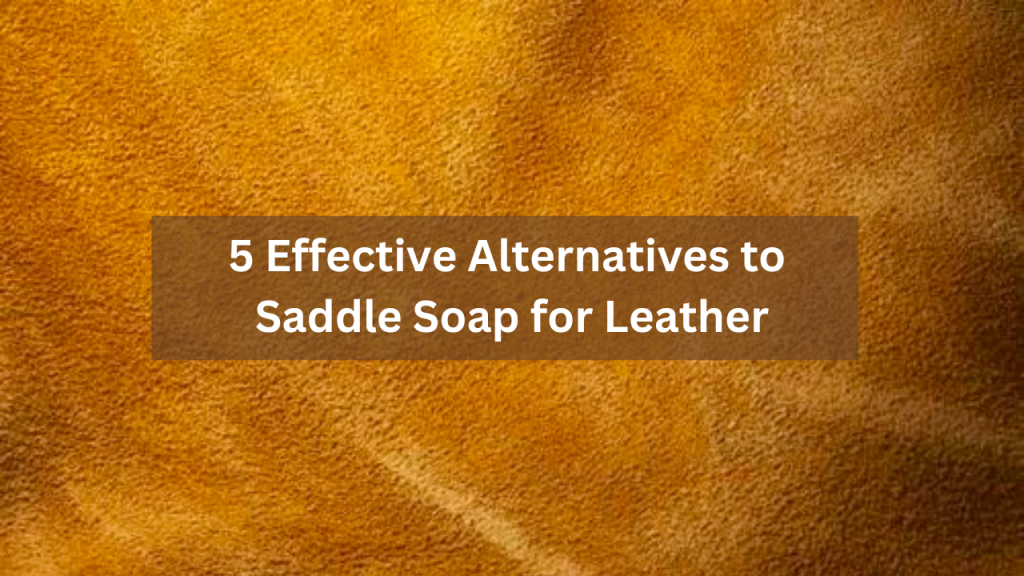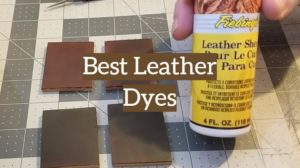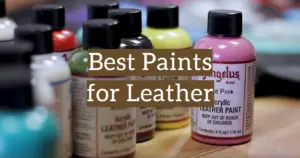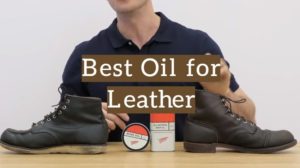
Leather is a timeless material that adds sophistication and durability to everything from shoes and belts to furniture and saddles. As long-lasting as leather can be, it also requires proper maintenance to keep it looking its best. While saddle soap has been the go-to cleaner for leather aficionados for years, it’s not the only option on the table. In fact, there are numerous effective and less harmful alternatives that you should consider for your leather care regimen.
The Debate: Saddle Soap’s Pros and Cons
Saddle soap has traditionally been used for cleaning leather items, from saddles and boots to jackets and furniture. It excels at removing accumulated dirt, sweat, and grime. However, it’s essential to understand that saddle soap can be a double-edged sword when it comes to leather care.
On the upside, saddle soap is effective at removing dirt and restoring the color of the leather. On the flip side, it contains chemicals that can potentially strip away natural oils, leaving the leather dry and prone to cracks. This outcome is particularly true when saddle soap is applied liberally or frequently.
Is Saddle Soap a No-Go for Suede?
A key point to remember is that saddle soap isn’t suitable for all types of leather. For example, using saddle soap on delicate leather, such as suede, is not recommended as it can adversely affect the napped finish. So if you’re wondering about mink oil for suede or alternative solutions, read on.
Can You Waterproof Leather with Saddle Soap?
The simple answer is no; saddle soap does not have waterproofing capabilities. If you’re looking for ways to make your leather water-resistant, you will need to use a dedicated waterproofing spray or wax. This is where a product like mink oil can be beneficial, as it does provide some level of waterproofing, in addition to its conditioning properties.
5 Alternatives To Saddle Soap:
Whether you’ve run out of saddle soap or are seeking a gentler, more natural alternative, there are several reliable saddle soap substitutes worth considering.
1. Dawn Soap: The Gentle Cleaner
If the question, “Can dawn soap be used on leather?” has crossed your mind, the answer is a resounding yes. Creating a mixture of equal parts water and Dawn soap offers a gentle but effective cleaning solution for your leather items. Always remember to rinse thoroughly and dry with a soft towel after cleaning.
2. White Vinegar: The Budget-Friendly Choice
White vinegar works wonders as a saddle soap alternative, efficiently removing grime, dirt, and stains. However, it’s crucial to dilute the vinegar with water to prevent the acidic nature of vinegar from degrading the leather.
3. Mink Oil: More than Just a Conditioner
Mink oil has long been touted for its beneficial effects on leather. Derived from the fatty tissues of minks, this natural product serves as an excellent conditioner and lubricant for leather surfaces. While mink oil offers several advantages over saddle soap—including its ability to protect against UV rays—it’s essential to use it cautiously. Too much mink oil can darken leather pieces, so always test a small area first.
4. Dubbin: The Classic Moisturizer
Dubbin is a waxy substance filled with natural fats and oils, often used to condition leather. Though not as popular today, it’s an effective alternative to mink oil and other conditioners. It’s particularly good for items that need extra moisture but isn’t recommended for unfinished leather.
5. Glycerin: The Humectant
Glycerin is another viable mink oil alternative for those seeking a natural conditioner. It keeps moisture locked into the leather, preventing it from drying out. Glycerin is commonly found in many saddle soaps, serving as their humectant component.
Saddle Soap or Leather Conditioner: Making the Choice
Your leather items’ condition will largely dictate whether saddle soap or a leather conditioner is the better option. For heavily soiled or neglected leather, saddle soap is more suitable due to its robust cleaning capabilities. However, if your leather simply needs some TLC, a conditioner like mink oil or Dubbin would be more fitting.
DIY Saddle Soap: An Adventure in Crafting
If you’re in the mood for a little DIY, you can easily make your own saddle soap with simple ingredients like glycerin, castile soap, and neatsfoot oil. Combine these in a cooking pot over medium heat, stir until melted, pour into a container, and you have a homemade saddle soap ready for use.
Leather Care for Furniture: Couch Edition
Yes, saddle soap can be applied to leather couches. Yet, it’s advisable to conduct a patch test before embarking on a full-scale cleaning. If your furniture only requires mild cleaning and conditioning, alternative solutions like mink oil and glycerin can work wonders.
Cleaning Saddles: No Saddle Soap Required
Cleaning a saddle is feasible even without saddle soap. A mixture of warm water and mild detergent can be used to scrub away dirt and grime. If you prefer a more natural approach, diluted vinegar is another effective cleaning solution. Always ensure to rinse the saddle thoroughly to avoid any residue.
In Conclusion
The leather care landscape is teeming with alternatives to saddle soap, from dawn soap to white vinegar and rich conditioners like mink oil and Dubbin. By understanding your leather items’ specific needs, you can choose the most effective and less harmful cleaning and conditioning agents. This tailored approach will keep your leather looking luxurious and extend its lifespan significantly.









